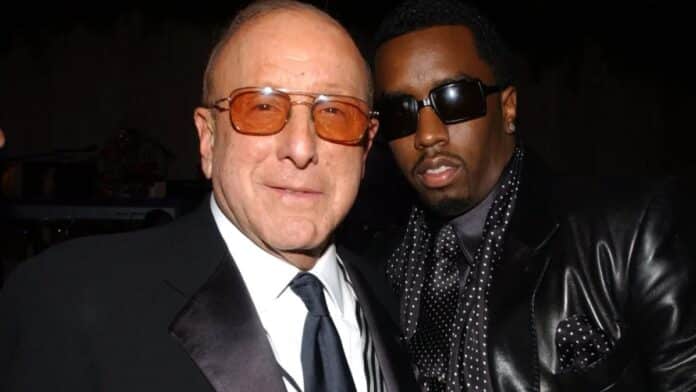
Clive Davis and Diddy: The Story Behind Their Influential Partnership and Recent Allegations
Clive Davis and Diddy's relationship marks a significant chapter in music industry history, combining Davis's legendary executive prowess with Diddy's innovative vision in hip-hop.
Davis, who became President of Columbia Records in 1967, built his reputation by launching the careers of artists like Billy Joel, Bruce Springsteen, and Whitney Houston. His influence extended across multiple genres and decades of music.

Clive Davis and Diddy posing together
In 1994, Davis and Diddy formed a 50-50 partnership to create Bad Boy Records. This collaboration produced numerous hip-hop and R&B hits, launching artists like The Notorious B.I.G., Faith Evans, and 112. Their partnership revolutionized the music industry and set new standards for cross-genre collaboration.
Recent developments have cast a shadow over this legacy. Marion "Suge" Knight, currently incarcerated, has made serious allegations against both Davis and Diddy. Knight claims they, along with other executives, used substances to control artists, with accusations extending to their treatment of younger stars like Justin Bieber.
Diddy's current legal situation, including his detention at Brooklyn's Metropolitan Detention Center, has intensified scrutiny of these past relationships and industry practices.
While Davis's contributions to music remain significant - from discovering talent to producing countless hits - these allegations have sparked important discussions about power dynamics and accountability in the entertainment industry. The partnership between Davis and Diddy, though groundbreaking, now serves as a complex case study in the balance between artistic success and ethical responsibility in the music business.
The ongoing developments continue to shape public perception of both figures' legacies, highlighting the need for transparency and ethical practices in the music industry.